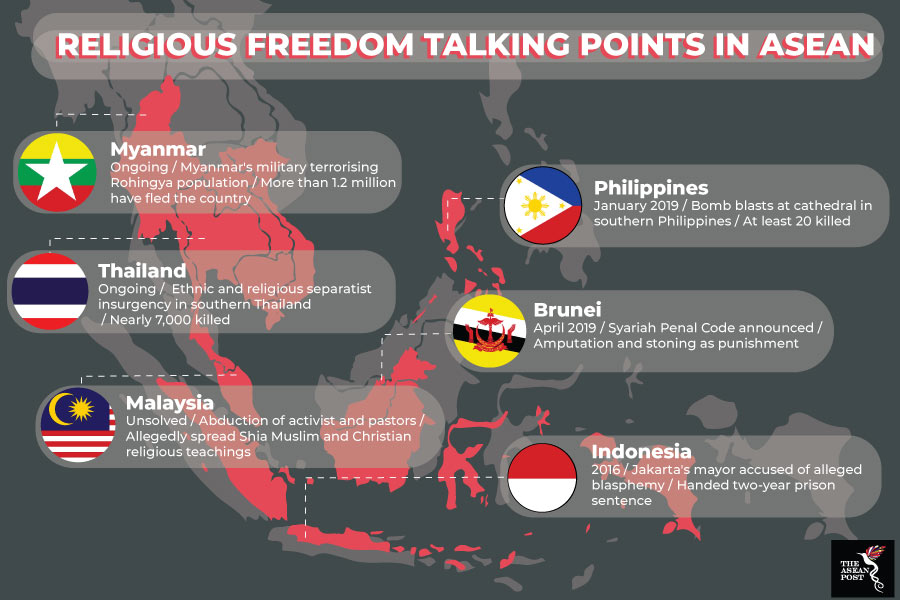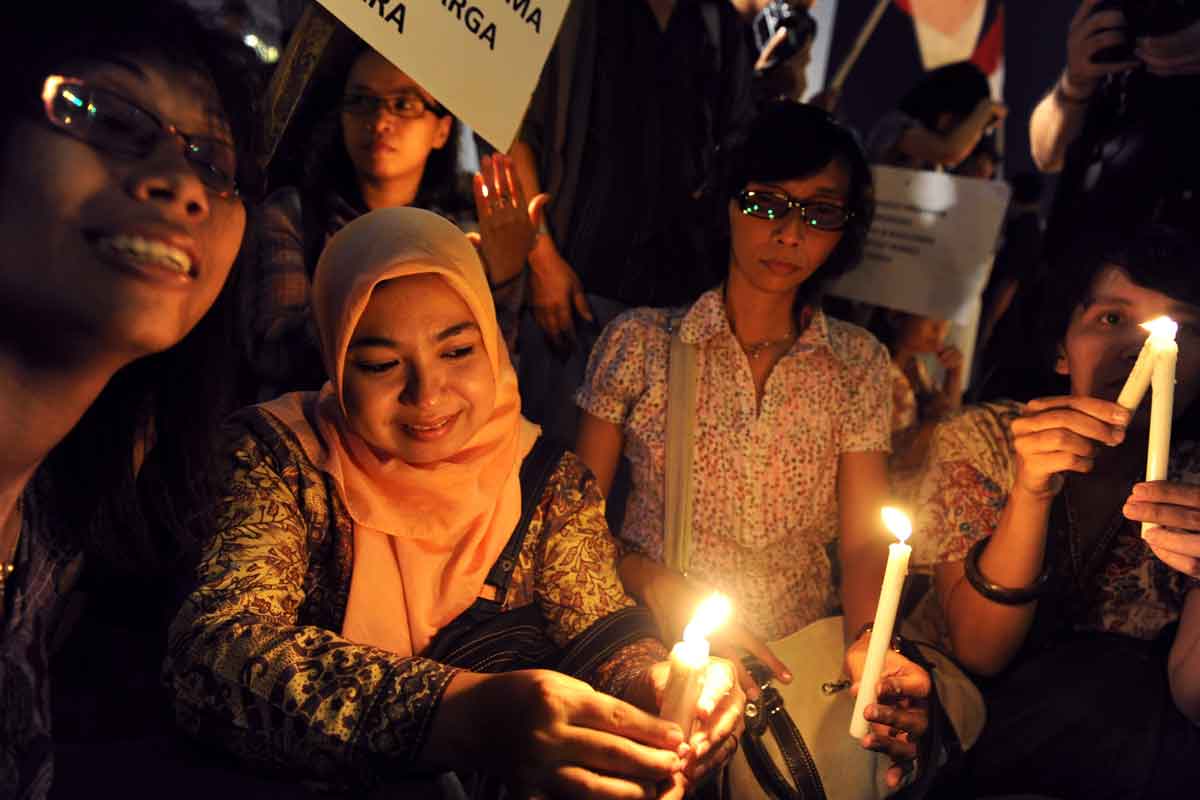From January’s church bombings in southern Philippines which killed at least 20 and wounded scores more, to the decades-old persecution of Myanmar’s Rohingya population which has seen a mass exodus of 1.2 million people fleeing for their lives, religious freedom isn’t exactly one of ASEAN’s strong points.
With 650 million people in 10 countries, ASEAN’s diversity has long been one of its defining characteristics. While people of different religions have traditionally lived together in relative harmony, the region is witnessing a rise in online hate speech and the spread of discrimination, harassment and violence against minorities across the region, putting religious freedom at danger.
Religious freedom is an important human right recognised in international law and treaties, with Article 18 of the Universal Declaration of Human Rights (UDHR) affirming that: “Everyone has the right to freedom of thought, conscience and religion; this right includes freedom to change his religion or belief, and freedom, either alone or in community with others and in public or private, to manifest his religion or belief in teaching, practice, worship and observance.”
‘Blurring the lines of religion and ethnicity’
As the United States Commission on International Religious Freedom (USCIRF) pointed out in its 2017 report ‘A Right For All - Freedom of Religion or Belief in ASEAN’, religious freedom in the region is threatened by political forces which regularly exploit religion and ethnicity.
“This trend of blurring the lines of religion and ethnicity has intensified during the last decade, becoming a popular rhetorical and campaign tool across the political and ideological spectrum,” stated the report.
While pointing out that “religion is often used to camouflage hatred”, the ASEAN Parliamentarians for Human Rights (APHR) noted in a press release this week that the overall lack of knowledge in ASEAN about freedom of religion or belief in the broader context of human rights is extremely concerning, calling for greater solidarity and joint action among governments and legislatures to tackle such violations and increase protection for all.
At a recent meeting in Bangkok, the APHR pledged to place greater attention and urgency on ensuring religious freedom and combating rising inter-communal tensions, religious discrimination and intolerance.

The meeting was aimed at increasing collaboration to advance freedom of religion or belief in Southeast Asia – producing key recommendations which include the development of guidelines or laws on the connection between freedom of expression and freedom of religion or belief, the enhancement of community standards to ensure monitoring and regulation of hate speech, as well as a strong and impartial judiciary system.
Apart from the contributing factor that religious persecution played in the build up to atrocious crimes against the Rohingya in Myanmar, other topics of discussion at the meeting included the dangerous use and manipulation of race and religion in politics in Malaysia.
Indonesia’s Supreme Court in April upheld an 18-month sentence for a mother of four who was convicted last year of blasphemy after complaining that her neighbourhood mosque was too loud, the rise of religious polarisation in Indonesia and the threat it poses to democracy and stability there was also on the agenda during the APHR meeting in Bangkok.
Myanmar as an example
Worryingly, key findings of the United Nations (UN)-mandated Independent International Fact-Finding Mission on Myanmar (IIFFMM) – and how hate speech incited violence between religious communities there – should serve as a wake-up call for the rest of the region.
Stating that the genocide, war crimes and crimes against humanity that took place in Myanmar came against the backdrop of religious persecution, Marzuki Darusman, the chairperson of the UN Human Rights Council’s IIFFM, emphasised the importance of addressing the right to freedom of religion or belief (FoRB).
“Religious persecution matters because left unchecked, it leads up to atrocious crimes. This is a condition that is not unique to Myanmar but to the region as a whole.”
Related articles:
UN issues ID cards for Rohingya refugees
